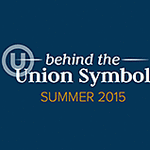Anticipating OU Certification for our Bakery
Q: Our bakery has only been using kosher certified ingredients for the past five years. We are now interested in attaining kosher certification. Will we still need to undergo a kosherization for all of our lines and equipment?
A: This is a very complex question that can really only be fully answered after a complete and thorough review by one of our rabbinic field representatives (RFRs), in consultation with the rabbinic coordinator (RC) assigned to your company. If indeed non-kosher was processed on the equipment, even though five years have elapsed, there might still be a need for some sort of kosherization. However, because of the long passage of time, kosher law does allow for certain leniencies, especially when there are other mitigating factors. There are many aspects that can play a major role in this determination.
When posing this question to the OU, it is best to assemble the following documentation to help us expedite an answer to your question:
- The spec sheets for any non-kosher ingredients that were used. The OU can help determine the status of any questionable ingredients, even if they were used many years ago. Oftentimes, companies are surprised to learn that ingredients they had always assumed to be non-kosher, were in fact produced at an all-kosher certified plant.
- Batch sheets from the non-kosher productions.
- Process flow charts for the non-kosher production, including an indication of where in the process the non-kosher ingredients were used. The exact method of use plays a vital role in determining whether or not there is still a need to kosherize and what type of kosherization will be required.
- CIP records and sanitation protocols from the time those non-kosher products were produced.
- Maintenance records for the equipment since the non-kosher products were produced. Also, if any equipment was purchased new in the interim, documentation for that should be provided as well.
Make sure to gather any other relevant supporting documentation including receipts and bills of lading that will help the RC (rabbi in the office) and RFR (visiting rabbi) corroborate this information. Putting together a picture of what has been happening at a plant over the past five years is in many ways like assembling a giant jigsaw puzzle. The more pieces of the puzzle that can be brought together, the clearer the picture emerges.
RABBI ELI GERSTEN SERVES AS OU RABBINIC COORDINATOR AND RECORDER OF OU POLICY. HE IS A FREQUENT CONTRIBUTOR TO BTUS.


